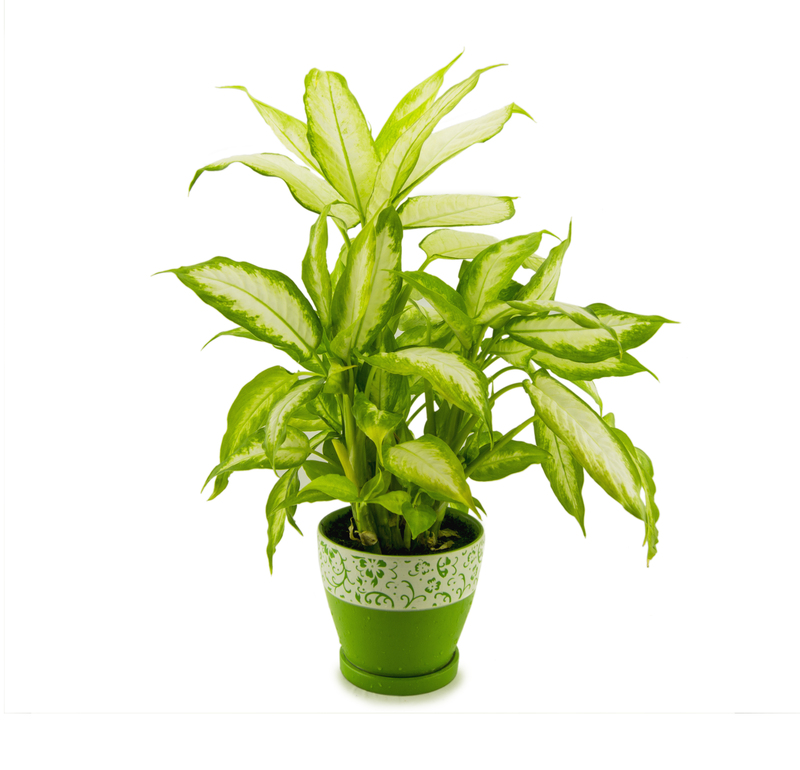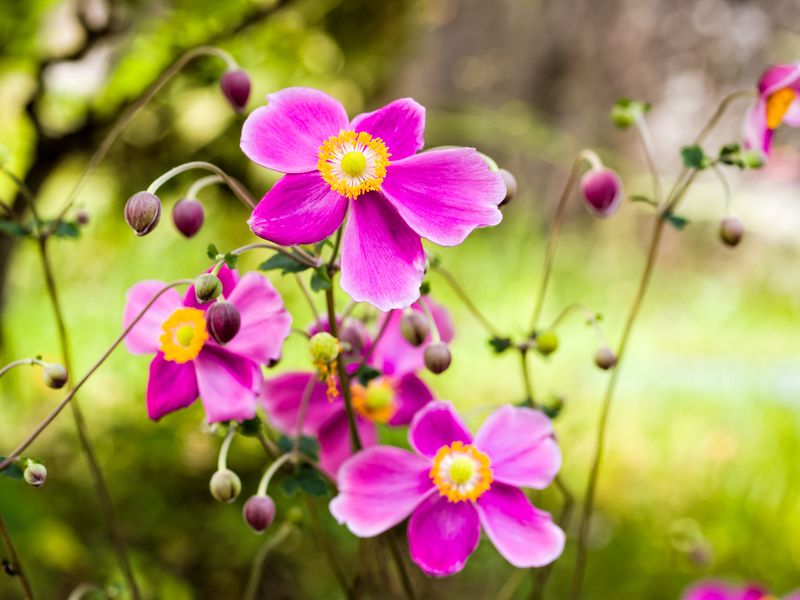Grow Your Gardening Skills with These 9 Essential Tips for Starters
Posted on 26/05/2025
Grow Your Gardening Skills with These 9 Essential Tips for Starters
Dreaming of cultivating a lush, vibrant garden but feeling overwhelmed by all you have to learn? Whether you have a sprawling backyard or a cozy balcony, starting your journey into the world of gardening doesn't have to be intimidating. In this comprehensive guide, we'll share 9 essential gardening tips for beginners to help you plant the seeds of success and grow your gardening skills with confidence.
Let's dive into these valuable garden tips for starters and watch your green thumb flourish!
Why Is Gardening a Rewarding Skill to Cultivate?
The art of gardening goes far beyond aesthetics. Whether you plant vegetables, grow flowers, or care for houseplants, gardening offers endless benefits.
- Mental wellness: Nurturing plants can reduce stress and connect you with nature.
- Physical activity: Digging, planting, and weeding offer good exercise.
- Fresh produce: Homegrown vegetables and fruits enhance your meals with unbeatable freshness.
- Sustainable living: Gardening helps decrease your carbon footprint and boosts biodiversity.
Ready to start your gardening journey? Explore the expert gardening tips below for a thriving, rewarding garden experience.

1. Start Small and Choose the Right Plants
If you're new to gardening, it's tempting to dream big, but starting small is key. Kick off your gardening adventures with a manageable patch or a few pots. Select plants known for being beginner-friendly and resilient.
Best Starter Plants for New Gardeners
- Lettuce and leafy greens: Quick-growing, low-maintenance, and harvestable within weeks.
- Radishes and carrots: Perfect for direct sowing and fast results.
- Sunflowers and marigolds: Bright blooms that tolerate some neglect.
- Herbs like basil, mint, or parsley: Great for windowsills or small pots, with minimal care requirements.
Pro tip: Read plant labels or seed packets for guidance on sunlight, spacing, and care needs.
2. Understand Your Garden's Conditions
Every garden is different. Before planting, assess your site's conditions so you can match plants to the correct spots.
Key Considerations
- Sunlight: Observe how many hours of light your space receives daily. Most vegetables and flowers require 6-8 hours of sunlight.
- Soil type: Is your soil sandy, loamy, or heavy clay? Each type drains and holds nutrients differently.
- Temperature and climate: Choose varieties suited for your region and growing season.
- Water access: Ensure your plants will be easy to water, especially during dry spells.
Understanding your unique gardening site increases your chances of success and growth.
3. Invest in Good Tools
No aspiring gardener needs a shed full of fancy gadgets, but a few basic, quality tools will make your work more enjoyable and effective.
Essential Garden Tools for Beginners
- Hand trowel: Useful for digging holes, transplanting seedlings, and weeding.
- Pruning shears: Keeps plants in shape and encourages healthy growth.
- Watering can or hose with spray head: Gentle, consistent watering is crucial.
- Gloves: Protect your hands from thorns, dirt, and insects.
- Garden fork: Helps break up and aerate soil for healthy root growth.
Remember: Clean and store your tools properly for long life and the best results.
4. Learn How to Prepare and Improve Your Soil
Your plants rely on healthy soil for nutrients, water, and structure. Soil preparation is a foundational gardening skill for beginners.
- Remove weeds and large stones from your planting area.
- Add organic matter like compost, aged manure, or leaf mold to enrich your soil.
- Test soil pH if possible. Most plants prefer slightly acidic to neutral soil (pH 6-7).
- Loosen compacted soil with a fork to aid drainage and root development.
Healthy soil means healthy plants. Don't skip this vital step!
5. Practice Proper Watering Techniques
Overwatering is a common mistake among new gardeners. Different plants have distinct water needs, so learn how to water correctly.
Watering Tips for Gardening Starters
- Water deeply, not just the surface. Encourage roots to grow deeper and withstand dry periods.
- Morning is best: Watering early helps prevent disease caused by prolonged moisture on leaves at night.
- Check moisture levels: Stick your finger into the soil; if it feels dry an inch down, it's time to water.
- Container gardens: Pots dry out faster than ground beds, so check them often.
Quality not quantity--watering less often but more thoroughly benefits your plants much more than frequent, shallow sprinkles.
6. Mulch for Healthier Plants and Fewer Weeds
Mulch is a gardener's secret weapon. It keeps moisture in the soil, suppresses weeds, and moderates ground temperature.
- Organic mulches: Shredded leaves, straw, bark chips, or grass clippings add nutrients as they decompose.
- Apply 2-3 inches: Around plants, keeping mulch a few inches away from stems to avoid rot.
- Reduce maintenance: A proper mulch layer means less time weeding and watering.
Top garden tip for beginners: Refresh mulch each season for continual benefits.
7. Feed Your Plants Regularly
Even good soil loses nutrients as plants grow. Learning how and when to fertilize is an essential gardening tip for beginners.
Fertilizer Tips for Starters
- Choose the right fertilizer: Organic (compost, worm castings) or synthetic blends (granules, liquid feeds).
- Do not over-fertilize: Too much fertilizer can burn plants or harm soil life.
- Follow instructions: Apply according to package directions for best results.
Bonus tip: Fish emulsion and liquid seaweed are gentle organic options perfect for young plants!
8. Keep Pests and Diseases Under Control
Garden pests and diseases can be discouraging, but understanding basic organic controls will set you up for a healthy garden.
- Inspect plants regularly for holes, changes in leaf color, or sticky residue.
- Encourage beneficial insects like ladybugs and lacewings, which help control damaging pests.
- Remove affected leaves or plants quickly to prevent the spread of disease.
- Avoid overcrowding plants: Good air circulation reduces fungal diseases.
- Organic sprays: Use neem oil, insecticidal soap, or homemade garlic sprays for gentle control.
Be proactive! Early intervention saves your plants and reduces frustration.
9. Keep a Garden Journal and Keep Learning
Tracking your progress is one of the most underappreciated garden tips for starters. A simple notebook or garden app will work wonders.
- Record what you plant and the dates you sow, transplant, fertilize, or harvest.
- Note problems and successes: Document pest issues, weather changes, and outstanding blooms or harvests.
- Use sketches or photos: Visual references help with planning and future improvements.
Gardening is a lifelong journey. Keep reading, connect with local gardeners, join social media groups, and don't be afraid to try new things!

Frequently Asked Questions: Boosting Your Beginner Gardening Skills
How much time does gardening for beginners take?
Even 15-30 minutes a day tending your plants can make a huge difference. As you gain confidence, you might enjoy spending more time in your garden.
What are common mistakes to avoid for new gardeners?
- Planting too early or late in the season
- Overwatering or underwatering
- Ignoring sun and soil requirements
- Neglecting regular checks for pests and diseases
- Starting too ambitious and burning out
Can I have a garden in a small space?
Absolutely! Container gardening, vertical gardens, and windowsill planters are all excellent ways to hone your gardening skills even with minimal room.
Conclusion: Develop Your Green Thumb with These Gardening Tips for Starters
Embarking on your gardening journey is both exciting and rewarding. With the 9 essential gardening tips for beginners outlined above, you'll gain skills, experience, and above all, confidence to cultivate the garden of your dreams. Remember, learning to grow plants is a process--each season, you'll harvest not only vegetables or flowers, but also new knowledge and joy.
Don't hesitate to get your hands dirty, experiment, and enjoy the process. Your future self--and your flourishing plants--will thank you!
Ready to get started? Pick up a trowel, gather some seeds, and take your first step to growing your gardening skills today!
Latest Posts
Turning Soil into a Climate Change Ally with Gardening
Gardening Made Easy: Dive into the World of Containers
Step-by-Step Guide to Building the Best Garden Seating Areas

